Are discus fish hard to keep? Whether you’re a beginner or experienced fish keeper, discus fish require careful attention to maintain optimal health. In this comprehensive guide, I will provide essential tips for creating the perfect environment for your discus fish, maintaining water conditions, ensuring proper diet and feeding, choosing suitable tank mates, troubleshooting common challenges, and breeding discus fish.
Table of Contents
Key Takeaways:
- Discus fish require careful attention to maintain optimal health.
- Creating the perfect environment for your discus fish is crucial for their overall health and happiness.
- Consistency in water parameters is vital for the well-being of discus fish.
- Nutrition plays a significant role in the overall health and vibrant colors of discus fish.
- Choosing compatible tank mates is crucial to maintain harmony in the aquarium.
Understanding Discus Fish: An Introduction to These Majestic Creatures
Discus fish are fascinating creatures that have captivated aquarium enthusiasts for decades. Before diving into their care, it’s important to understand their natural habitat, physical characteristics, and unique behaviors that make them such a sought-after species.
Belonging to the Cichlidae family, discus fish are native to the Amazon River basin in South America. With their striking colors, disk-like shape, and flowing fins, they are often referred to as the “King of the Aquarium.
Despite their regal appearance, some may wonder, “Are discus fish hard to keep?” While they do require specific care and attention, with the right knowledge and preparation, discus fish can thrive in a home aquarium.
One of the most notable features of discus fish is their unique breeding habits. They are caring parents who display impressive parenting instincts, including feeding and nurturing their fry until they are fully grown.
Whether you’re a beginner or seasoned fish keeper, discus fish are a rewarding species to add to your collection. In the following sections, we’ll explore the essential requirements for discus fish care and offer valuable tips for maintaining a thriving and healthy aquarium. From selecting suitable tank mates to achieving optimal water conditions, we’ll guide you through every step of the process. Let’s dive in!
Setting Up the Ideal Discus Fish Aquarium
As a discus fish enthusiast, it’s essential to establish an optimal environment for these stunning fish to thrive. This section presents a step-by-step guide to creating the ideal discus fish aquarium that promotes their physical and mental well-being.
Selecting the Right Tank
The first step in setting up your discus fish aquarium is to select the appropriate tank size. Discus fish are active swimmers, and a larger tank helps to mimic their natural habitat, promoting health and reducing stress. As a general rule, select a tank that has a capacity of at least 50 gallons for a pair of discus fish, and increase the tank’s size as you add more fish.
Equipment
To maintain a thriving discus aquarium, ensure you invest in the necessary equipment. The equipment includes a heater to maintain optimal water temperatures, a filter to keep the water clean, and an air pump for sufficient oxygen supply. Consider adding a timer to control the lighting to mimic natural light cycles.
The Ideal Water Conditions
Discus fish are sensitive to water conditions, and slight changes in water parameters can stress or even kill them. The ideal water parameters for discus fish include a pH range of 6.0 to 7.5 and a temperature range of 82-86°F. Maintain consistent water quality by performing regular water changes, testing your water regularly, and using a high-quality water conditioner to remove harmful chemicals.
Establishing the Right Environment
Discus fish are social animals, so maintaining a suitable environment is crucial. Live plants can help to mimic their natural habitat, providing hiding places and security while maintaining water quality. Mimic your discus fish’s natural habitat by providing driftwood, rocks, or small caves, and avoid any sharp objects that could damage their delicate fins or scales.
Necessary Precautions
Before introducing your discus fish to the aquarium, ensure you carry out proper quarantine procedures to prevent the spread of disease. As with any new fish, acclimatize your discus fish slowly to their new environment, reducing the chances of shock and illness.
Following these steps will help you establish an ideal discus fish aquarium that ensures optimum health for your fish. In the next section, we’ll discuss the importance of maintaining stable water conditions for your discus fish.
Maintaining Water Conditions for Discus Fish
Discus fish are delicate creatures that require specific water conditions to thrive. To ensure optimal health and well-being for your discus fish, it’s essential to maintain consistency in water parameters.
The ideal temperature for discus fish ranges from 82-86°F (27-30°C). Any fluctuations in temperature should be held within a narrow range of 1-2°F per day. In addition, pH levels should be kept near neutral at around 6.5-7.0.
Proper water quality is another integral aspect of maintaining optimal water conditions for discus fish. Investing in high-quality filters and conducting regular water changes is crucial to facilitate a clean and healthy habitat for your fish.
Some tips to help maintain stable water conditions in your discus aquarium:
- Perform regular water testing to monitor temperature, pH levels, and water quality.
- Condition your water using a reliable water conditioner to neutralize any harmful chemicals before adding it to the aquarium.
- Stimulate water flow to ensure adequate oxygenation and circulation of water throughout the tank.
Discus Fish Water Conditions Table
The following table shows the optimal water conditions for discus fish:
| Water Parameter | Ideal Range |
|---|---|
| Temperature | 82-86°F (27-30°C) |
| pH Levels | 6.5-7.0 |
| Water Quality | High-quality water filters and regular water changes |
By maintaining consistent and optimal water conditions for your discus fish, you’re taking an important step in ensuring their health and longevity. With proper care and attention, your discus fish can provide you with years of enjoyment and beauty in your aquarium.
Proper Diet and Feeding for Discus Fish
Proper diet and feeding are vital for the health and vibrant colors of discus fish. As a responsible pet owner, it’s important to understand your discus‘ nutritional requirements and offer a balanced diet to ensure their optimal growth and development.
Discus fish are omnivores, meaning they consume both meat and plant-based matter. In the wild, they feed on insects, worms, crustaceans, algae, and small fish. While commercially available dry and frozen food is commonly used, it’s crucial to supplement your discus’ diet with fresh vegetables and live or frozen food to replicate their natural diet as closely as possible.
Suitable Food Options for Discus Fish
When it comes to feeding discus fish, variety is the key to a balanced diet. Here are some recommended food options:
- High-quality dry or frozen food: Look for products with a high protein content and avoid those that contain fillers like wheat and corn.
- Live or frozen food: Brine shrimp, bloodworms, and daphnia are excellent protein sources for discus fish. However, avoid feeding them tubifex worms as they can cause health issues.
- Vegetables: Discus fish enjoy vegetables like spinach, cucumber, and zucchini as a source of fiber and essential nutrients.
Feeding Frequency
Discus fish should be fed at least twice a day, with small portions given each time. Overfeeding can lead to health issues and poor water conditions, so it’s crucial to keep track of how much they consume. A general rule of thumb is to feed them an amount that they can consume within five minutes, removing any uneaten food after that time.
Helpful Feeding Strategies
Here are some helpful feeding strategies to keep in mind:
- Feed your discus fish at the same time each day to help them establish a routine.
- Rotate the type of food you feed them to keep their diet varied and interesting.
- Pre-soak dry food to prevent it from swelling up in your discus’ stomach and causing blockages.
Remember to offer your discus fish a nutritionally balanced diet that replicates their natural diet as closely as possible. Providing them with high-quality food, live or frozen food, and fresh vegetables, in addition to feeding them in regular intervals, are crucial components of their overall health and well-being.
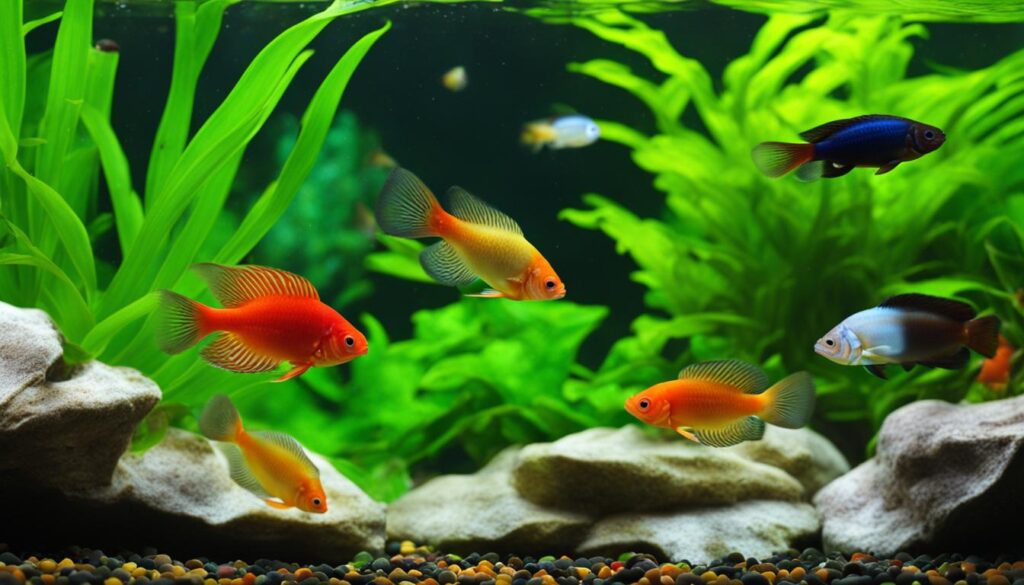
Tank Mates for Discus Fish: Finding Harmony in the Aquarium
Discus fish are truly mesmerizing creatures to observe, and having compatible tank mates can make the aquarium even more visually appealing. But with their peaceful yet territorial nature, choosing suitable companions can be challenging. Fortunately, with some careful planning and an understanding of your discus fish’s needs, you can create a harmonious community of fish in your aquarium.
When selecting tank mates for your discus fish, it’s essential to consider their temperament, size, and dietary requirements. Some of the most suitable tank mates for discus fish include:
| Tank Mates | Why They Work |
|---|---|
| Tetras | Small, peaceful fish that are compatible with discus fish and can add vibrant colors to the aquarium. |
| Corydoras | Benthic fish that are active and can help maintain a clean tank. |
| Angelfish | Similar in size and temperament to discus fish, these fish can coexist harmoniously in the same aquarium. |
| Gouramis | Peaceful fish that are compatible with discus fish and can add unique personalities to the aquarium. |
It’s important to keep in mind that larger and more aggressive fish, such as cichlids, should be avoided as tank mates for discus fish, as they can cause stress and territorial disputes. Also, avoid selecting fish with similar dietary requirements to your discus fish, as this can create competition and malnutrition.
When introducing new fish to the aquarium, it’s essential to do so slowly and gradually. This will give your discus fish time to adjust to their new companions and reduce stress. Monitor the behavior of all fish closely, and remove any aggressive individuals immediately.
By carefully selecting compatible tank mates for your discus fish, you can create a visually stunning and harmonious aquarium. Remember to consider temperament, size, and dietary requirements when selecting new fish. Follow these tips, and you’ll have a thriving and happy community of fish in your aquarium.
Common Challenges in Keeping Discus Fish and How to Overcome Them
Discus fish are not the easiest fish to keep. Although they are stunningly beautiful, they require precise care, and specific environmental conditions to thrive. There are several challenges that come with keeping discus fish, and it’s essential to understand and overcome them to keep your fish healthy.
1. Water Quality is Crucial
Discus fish are sensitive to poor water quality. Water changes are a must, with a minimum of 25% per week. High-quality filtration systems, regularly checked chemicals, and a well-maintained aquarium are vital to maintain water quality. You can use a drop checker to monitor the CO2 level in your aquarium, which affects the pH level of the water.
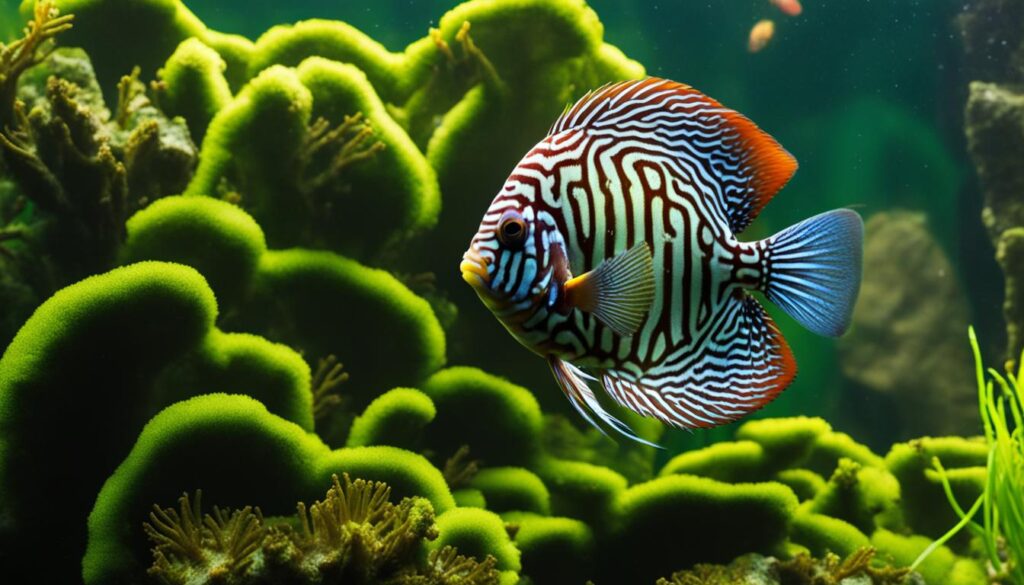
2. Temperature Fluctuations
It is imperative to maintain a consistent water temperature for discus fish. Drastic changes can put your fish in shock and lead to illnesses. Aim to keep the temperature between 82°F – 86°F. You can use an aquarium heater to maintain a steady temperature in your tank.
3. Choosing Compatible Tank Mates
Discus fish are peaceful, but they can become aggressive with other fish in the tank. Choose suitable tank mates that are compatible with discus fish to avoid conflicts. Avoid aggressive fish or fish that require vastly different water requirements from that of the discus fish.
Note: Discus fish could become aggressive with their same breed varieties if they are of the opposite sex and breeding.
4. Disease Prevention and Treatment
Discus fish are susceptible to a range of diseases, including bacterial, fungal, and parasitic infections. Regular water changes, quarantine tank for sick fish, and a varied, nutritious diet are crucial to prevent diseases in your fish. If you notice any symptoms of sickness in your fish, treat them promptly.
5. Stress from Overcrowding or Other Factors
Discus fish can become stressed from overcrowding or changes in their environment. Avoid overcrowding your tank and maintain a stable environment by avoiding sudden changes in the water conditions or adding new tank mates too quickly. You can also provide hiding spots like caves and planted areas in the aquarium to reduce stress levels.
Knowing how to combat these challenges will help you maintain a happy and healthy discus aquarium. With patience and proper care, you can enjoy the beauty of these majestic creatures for years to come.
Maintaining Optimal Discus Fish Health
As a discus fish owner, maintaining optimal health for your fish is crucial to ensuring they remain vibrant and happy. Regular maintenance routines, water testing, disease prevention, and proper care practices are essential to achieve this objective.
The following expert tips can help you maintain optimal discus fish health:
1. Regular Water Changes
The most crucial aspect of discus fish care is maintaining clean and stable water conditions. Regular water changes, typically around 25% every week, will help balance the tank’s pH levels and prevent the buildup of toxins harmful to fish.
2. Water Testing
Monitoring your tank’s water quality can help prevent water-related diseases and identifying any imbalances in pH, nitrates, or nitrites. Test your tank water weekly to ensure optimal water conditions for your fish.
3. Disease Prevention
Healthy discus fish are less likely to contract diseases or fall sick. Stressed or weak fish are more susceptible to infections, parasitic infestations, and other illnesses. Maintaining optimal water conditions, providing a well-balanced diet, and avoiding overfeeding can keep your fish healthy and resilient to diseases.
4. Proper Feeding and Nutrition
Feeding your discus fish with a balanced diet and in adequate amounts is critical to providing essential vitamins and nutrients for maintaining optimal health. A mixture of frozen, dry, and live food, including high-quality pellets and flakes, is recommended for discus fish to keep them healthy and vibrant.
5. Regular Tank Maintenance
Cleaning and maintaining your aquarium regularly can prevent the buildup of harmful toxins such as nitrate, nitrite, and ammonia, which can cause stress and illness in your fish. Remove any dead plants or debris, clean the tank, replace filter media, and check the equipment to ensure everything is functioning correctly.
6. Seek Expert Advice
If you’re unsure about any aspect of discus fish care, don’t hesitate to seek advice from an expert discus fish keeper or veterinarian who specializes in fish care.
Remember, maintaining optimal discus fish health requires careful attention and consistent effort, but the results are truly rewarding. By following these tips and embracing the bond with your fish, you can create a beautiful and healthy aquarium for your discus fish to thrive.
Breeding Discus Fish: Tips for Success
Breeding discus fish is a complex and fascinating process that requires careful planning and attention to detail for success. Here are some valuable discus fish breeding tips that can increase your chances of success:
1. Selecting Breeding Pairs
Choosing the right breeding pairs is crucial for success in breeding discus fish. Select pairs that are healthy, of appropriate age, and have shown compatibility and mating behaviors.
2. Preparing the Breeding Environment
Discus fish require specific environmental conditions for breeding, including appropriate water temperature, pH levels, and water quality. Create a breeding tank with a suitable substrate for the eggs to attach to, and provide adequate hiding places for the fish.
3. Monitoring Breeding Behaviors
Observing and monitoring the breeding behaviors of your discus fish is essential to ensure successful reproduction. Look for signs of courtship, mating, and egg-laying behaviors. If you notice any aggression or incompatibility, be prepared to separate the fish promptly.
4. Rearing Fry
Once the eggs hatch, the fry require special care and attention for survival. Feed them with suitable food, adjust the water conditions as needed, and provide appropriate filtration and lighting. Pay close attention to the fry, as they are vulnerable to disease and stress.
By following these discus fish breeding tips, you can increase your chances of successfully breeding and raising healthy discus fish. Breeding discus fish can be a challenging yet rewarding experience that can provide you with a deeper appreciation for these magnificent creatures.
Conclusion
In conclusion, as a discus fish enthusiast, I can attest that maintaining these majestic creatures can be a truly rewarding experience. While discus fish care may seem daunting at first, following the essential tips outlined in this guide will ensure their optimal health and happiness.
From setting up the ideal aquarium to maintaining water conditions, providing proper nutrition, and even breeding discus fish, this guide covers everything you need to know to become a successful discus fish keeper. Don’t hesitate to reach out to fellow discus enthusiasts or consult additional resources to expand your knowledge further.
Remember, with the right care and attention, your discus fish will thrive and amaze you with their beauty for years to come. So, dive in and enjoy the wonderful world of discus fish keeping!
FAQ
Can discus fish live alone, or do they require companions?
Discus fish are social creatures and thrive in groups, but they can also live alone. If you choose to keep a single discus fish, provide plenty of hiding spaces and decorations to prevent stress or boredom.
My discus fish are not eating. What should I do?
A sudden loss of appetite can indicate stress or disease. Check the water parameters and tank conditions, evaluate their diet, and consider offering live or frozen foods to entice them to eat. Seek advice from a veterinarian if their condition persists.
Do discus fish require special lighting?
A: While discus fish may benefit from a consistent lighting schedule, they do not require special lighting. Avoid bright or intense lights that may cause stress or discomfort, and ensure that their tank has enough natural light to support healthy plant growth.
Can I keep discus fish with other fish species?
A: Discus fish are peaceful, but they can be territorial, and care should be taken when selecting tank mates. Avoid aggressive or fin-nipping species, and choose companions with similar water parameter requirements. Common suitable tank mates include tetras, corydoras, and angelfish.
Why are my discus fish losing their vibrant colors?
Are discus fish hard to keep?
Discus fish require specific care and attention, making them a more challenging fish to keep compared to some other species. However, with proper knowledge and effort, they can thrive in a well-maintained aquarium.
What are some essential requirements for discus fish keeping?
Essential requirements for discus fish keeping include a spacious tank, stable water conditions, appropriate nutrition, and suitable tank mates. These factors contribute to maintaining a healthy and stress-free environment for your discus fish.
How do I maintain optimal water conditions for discus fish?
To maintain optimal water conditions, it is crucial to monitor temperature, pH levels, and water quality regularly. Consistency in these parameters, as well as performing regular water changes, is vital for the well-being of discus fish.
What is the proper diet and feeding regimen for discus fish?
Discus fish have specific dietary requirements, including a varied diet of high-quality pellets, frozen or live foods. Feed them multiple small meals per day, ensuring they consume their food within a few minutes to prevent overfeeding and water pollution.
Can discus fish coexist with other fish species?
Discus fish are peaceful but can be territorial. It is essential to select compatible tank mates that can coexist peacefully with discus. Avoid keeping aggressive or fin-nipping fish, and provide ample swimming space and hiding spots for all the fish in the aquarium.
What are some common challenges in keeping discus fish?
Common challenges in keeping discus fish include maintaining water conditions, preventing diseases, managing stress, and establishing a harmonious community in the tank. Understanding these challenges and implementing appropriate strategies can help you overcome them.
How can I ensure optimal health for my discus fish?
Regular maintenance routines, proper nutrition, water testing, disease prevention, and stress management are essential for maintaining optimal health in discus fish. Following these guidelines, along with providing a suitable environment, will contribute to their overall well-being.
What are some tips for breeding discus fish successfully?
Successful discus fish breeding requires selecting healthy breeding pairs, providing the right conditions, such as increased water temperature and high-quality food, and closely monitoring their behavior. It is also crucial to have a separate breeding tank to ensure the safety of the eggs and fry.
Where can I find further resources and references on discus fish care?
To expand your knowledge on discus fish care, you can explore books, websites, and online communities dedicated to this topic. They provide valuable information, insights, and an opportunity to interact with experienced discus fish keepers.
How can I troubleshoot common issues in discus fish keeping?
In the troubleshooting section, you will find answers to frequently asked questions and common queries related to discus fish care. This will help you address specific concerns and overcome any challenges you may encounter while maintaining your discus aquarium.
Can you provide additional resources and references for discus fish care?
Certainly! To further deepen your understanding of discus fish care, you can refer to renowned books such as “The Discus Book” by Al Leber and “Discus Keeping & Breeding” by Thomas Reisinger. Websites like SimplyDiscus.com and the Discus Fish Facebook group are also excellent sources of information and expertise in discus fish care.
References
The International Discus Association (IDA)
The Discus World International (DWI)
Please also check out other articles on this website like:
Master Breeding Techniques for Angelfish – A Guide for Hobbyists
Mastering Dwarf Puffer Fish Care: A Friendly Guide
Male or Female Betta? How to Tell – Your Ultimate Guide
Complete Guide to Plecostomus Tank Size: Tips and Advice
Simple Guide to Easy-to-Care-for Aquarium Plants
Discover the Diverse Corydoras Catfish Varieties- A Guide
Get to Know Various Types of Algae Eaters
Master Guide: Best Water Parameters for Goldfish Care 2023-24
Mastering Black Ghost Knife Fish Care: A Comprehensive Guide
Optimal pH Levels for Tropical Fish: Essential Aquarium Guide
Discovering Freshwater Snail Species: An In-depth Guide
Expert Tips for Breeding Guppies: Keys to Successful Fishkeeping
Discover Peaceful Community Fish: Your Guide to Calm Aquatics
Ultimate Guide to Live Food for Betta Fish — Healthy Choices
Complete Guide to Your Perfect Cichlid Tank Setup
Your Guide to the Best Substrate for Planted Aquariums
Essential Guide to Discus Fish Care: Help Your Pets Thrive!
Grow Your Own Eden: Beginner-Friendly Aquascaping Plants Guide
Perfect Neon Tetra Tank Mates: Guide to Aquarium Harmony
Product Review of Eheim Classic vs Professional
The Ultimate Guide to Discus Fish Care
What Fish Can Live With Discus?
Ideal pH for Discus Fish | Aquarium Water Guide
How to Sex Discus Fish?: A Simple Guide for Hobbyists
Complete Discus Fish Tank Setup Guide
Can Discus Fish Live With Angelfish? The Complete Guide

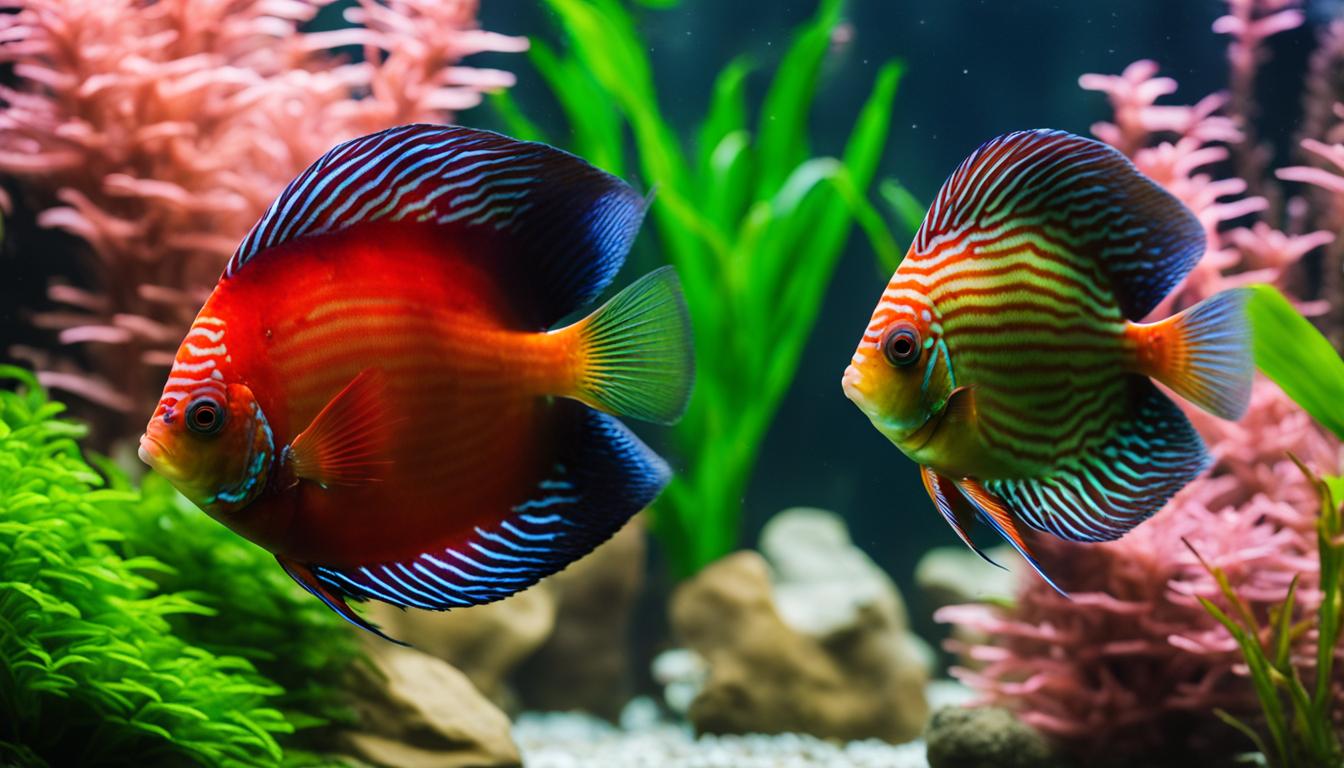

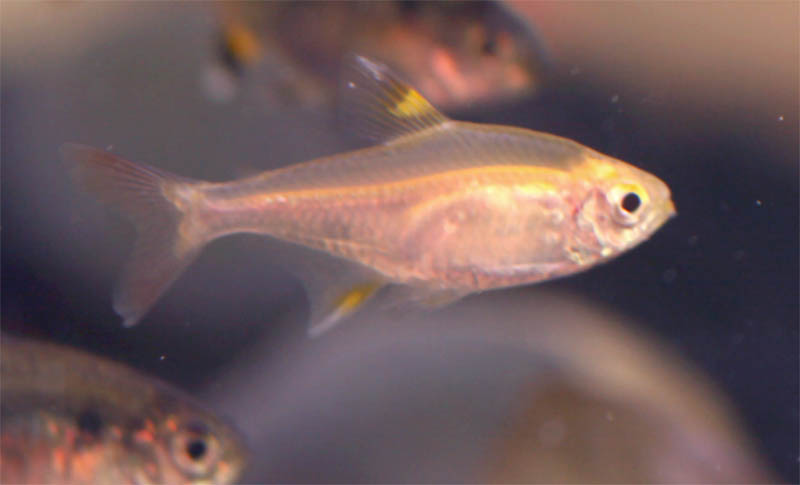
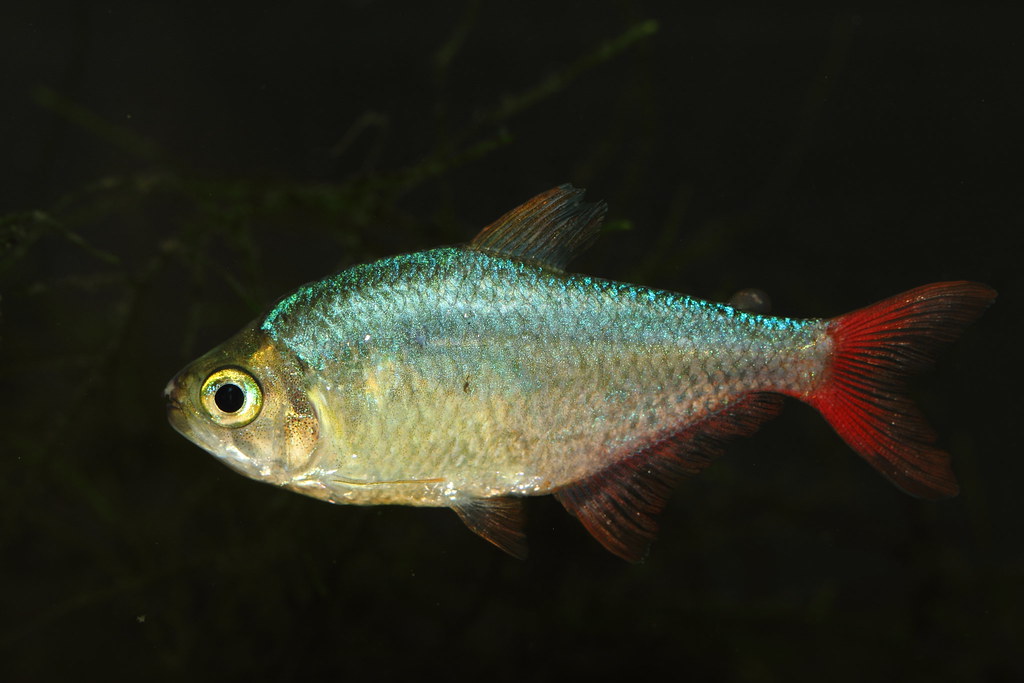
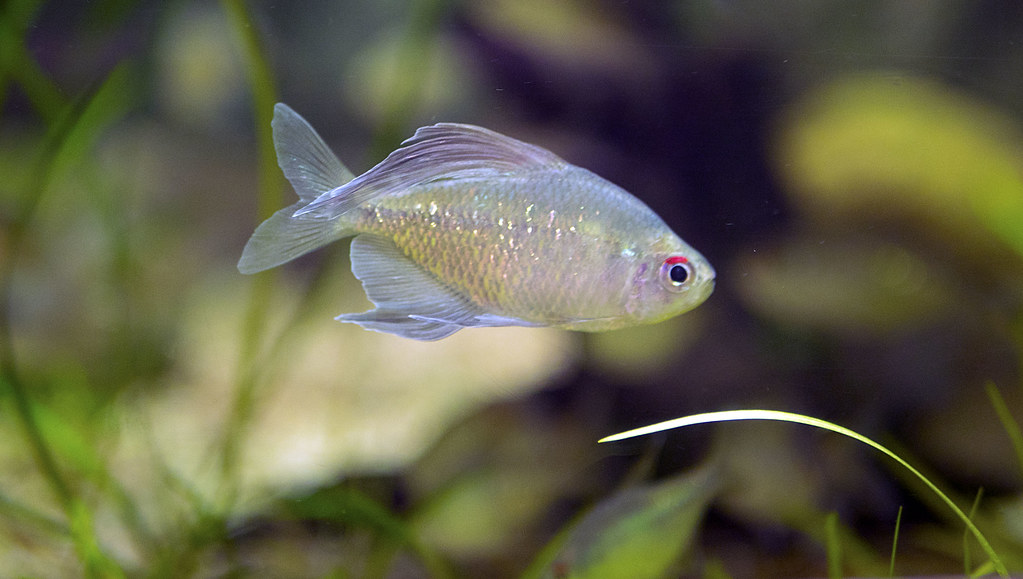
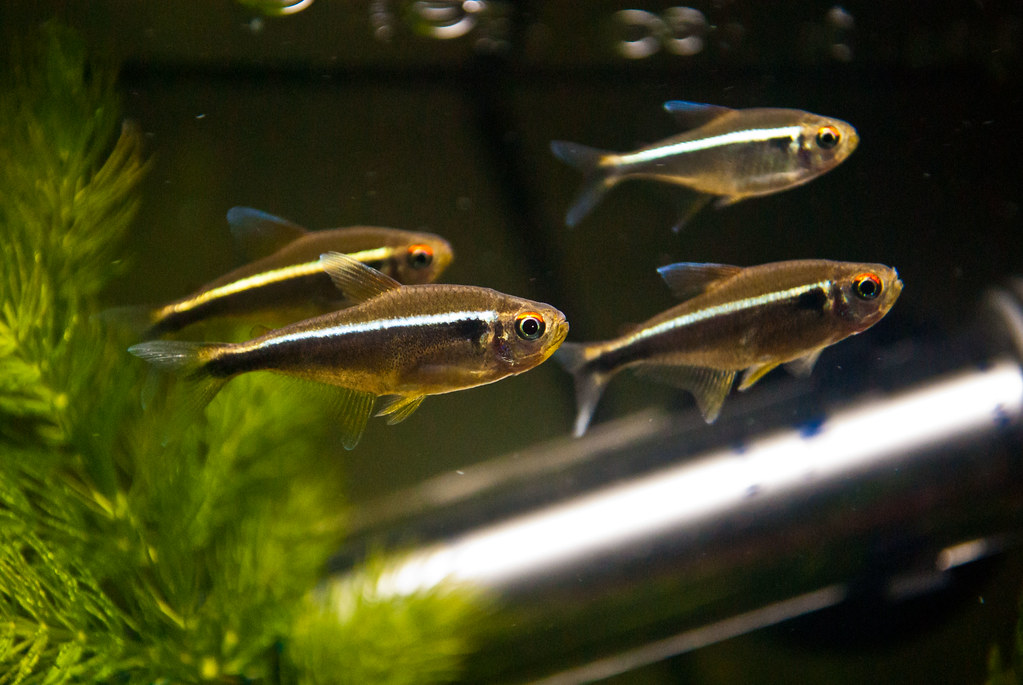
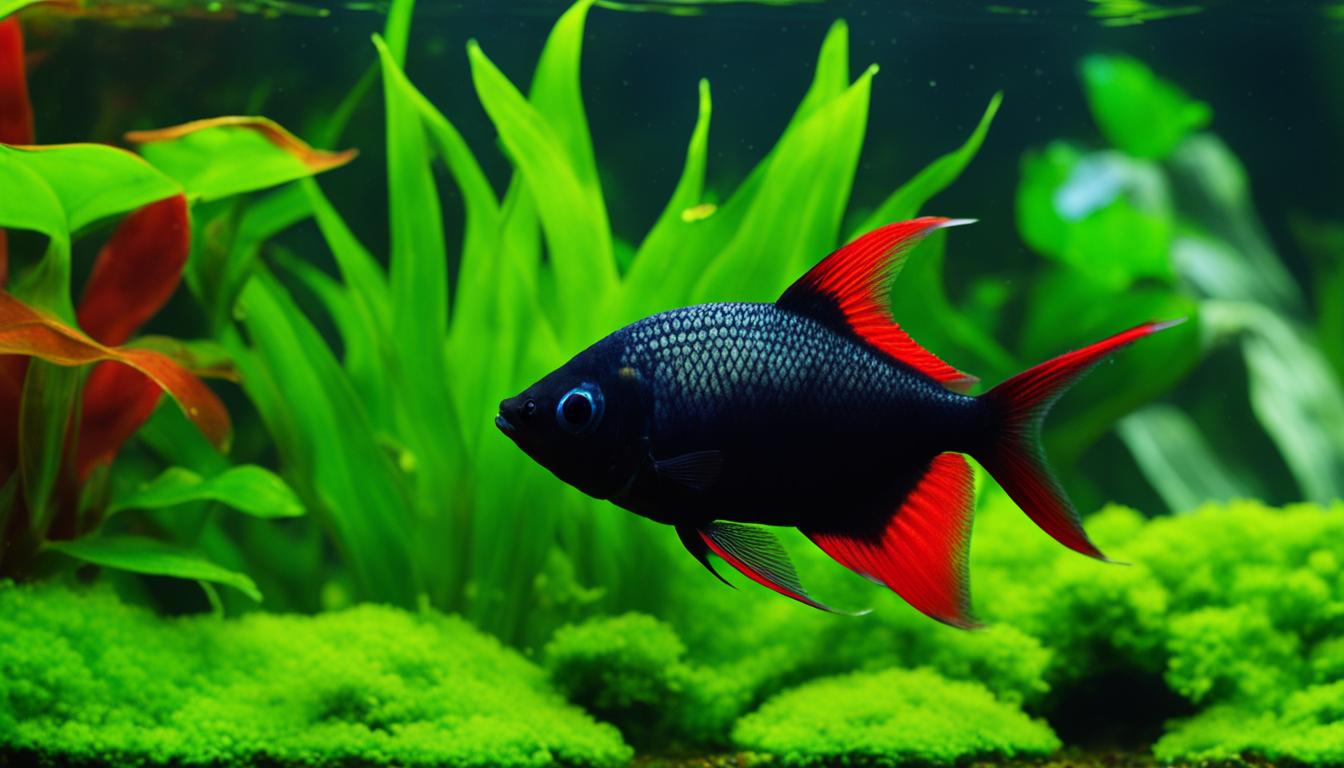
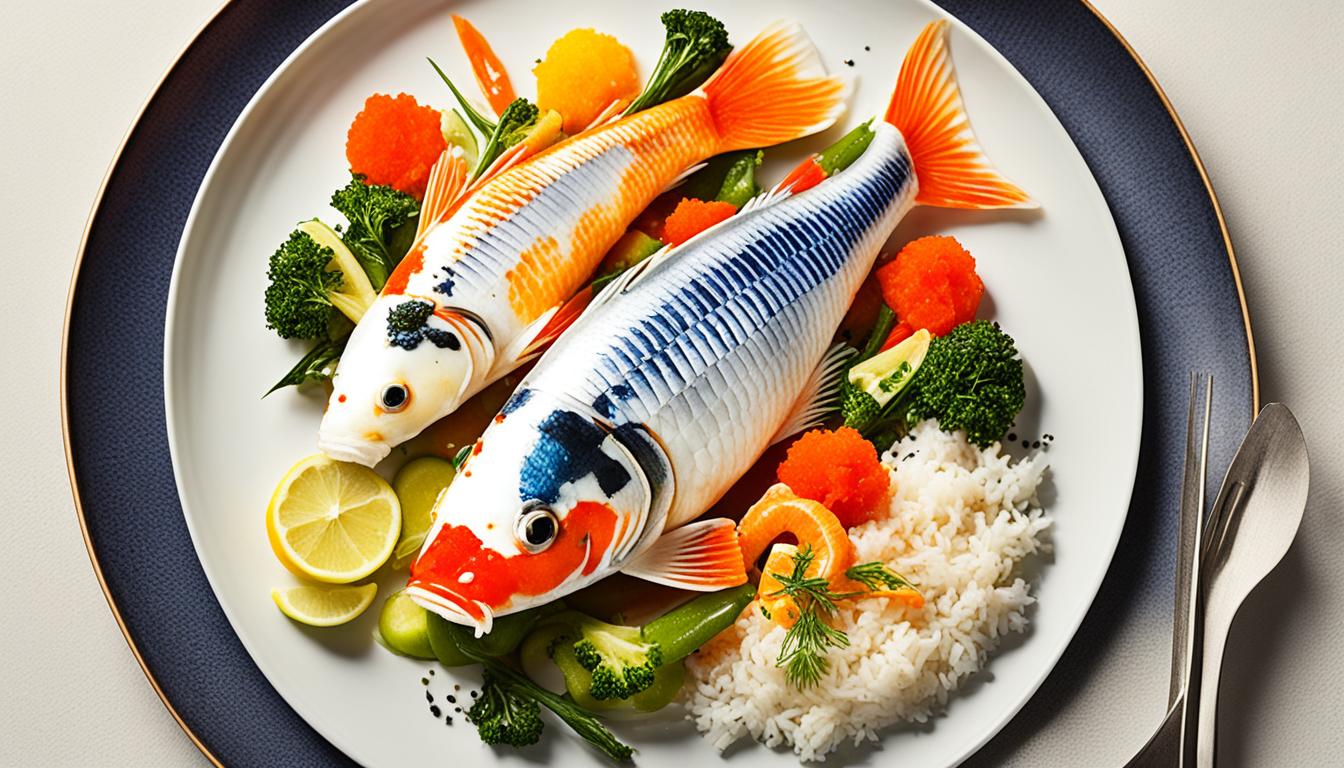
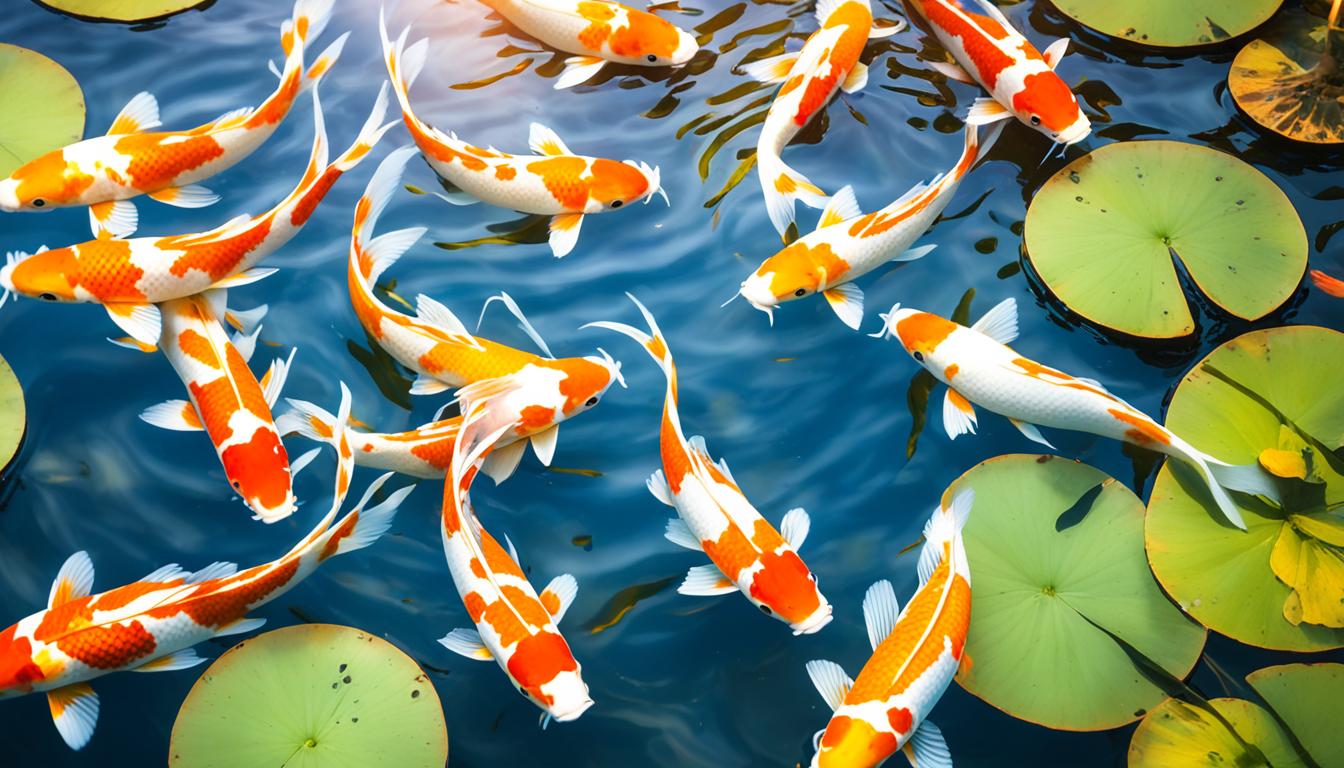
[…] Experts and enthusiasts provide valuable insights and tips on promoting the longevity of koi fish. […]
[…] this guide, we’ll look at the best freshwater fish for hard water. You’ll learn about fish that love high pH and general hardness. These tropical fish offer beauty and are full of […]